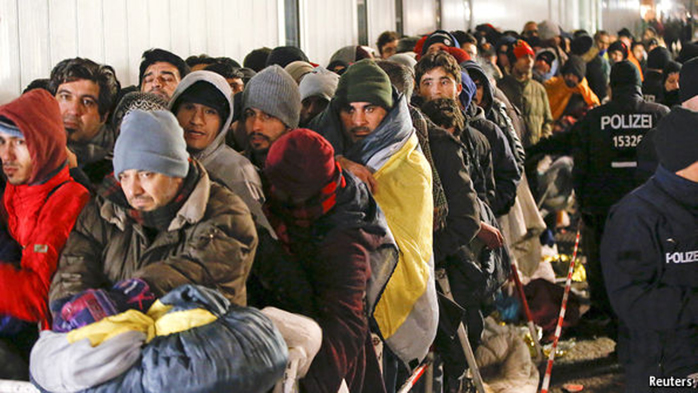Three quarters of German companies which have recruited refugees between 2015 and 2016 showed satisfaction with their work, according to a study: “Working Together: Labour Market Integration of Refugees in Germany” published by the Organisation for Economic Cooperation and Development (OECD), on March 14.
The OECD study, conducted with Germany’s DIHK chambers of commerce and Nahles’ labour ministry, found that 75 percent of 2,200 German firms surveyed had few or no difficulties with those they hired. The first of the estimated 1.2 million people who arrived in Germany in 2015 and 2016 from countries including Syria, Iraq and Afghanistan are starting to enter the labour market.
The study also mentioned that the legal framework as well as support services for access to the labour market in Germany is important for successful integration. Half of the 2,200 firms surveyed required refugees to have good proficiency in German, even for low-skill positions. For skilled jobs, that language requirement rose to almost 90 percent of all firms.
So far, two-thirds of refugee recruits had ended up in low-qualified jobs. Sixty percent of the firms had received job queries from asylum seekers over the past two years; of these, 70 per cent had hired at least one refugee or immigrant. Of those hired, 40 per cent of migrant applicants got normal jobs, some 30 per cent were given practical experience internships; the rest found training opportunities.
“Germany must now follow the structural integration after completing the first steps. Offers for vocational education and training as well as for subject-specific German lessons should be further developed, especially for low-qualified people,” said Gabriela Ramos, OECD Chief of Staff.
The OECD study runs counter to anti-foreigner sentiment exposed since Germany’s large intake in 2015 while endorsing refugee support strong among liberals in society. Since arriving, 14 per cent have found jobs after the individual processing of their asylum applications, a procedure that often takes months, the study found.
At the same time, it is evident that rapid labour market integration will often not be possible, especially for many women and low-educated refugees. Indeed, for the latter group rapid integration may conflict with the objective of ensuring long-term employability. More generally, given that most of those with international protection are unlikely to return to their origin countries in the near future; their integration should be seen as an investment, concluded the OECD study.


